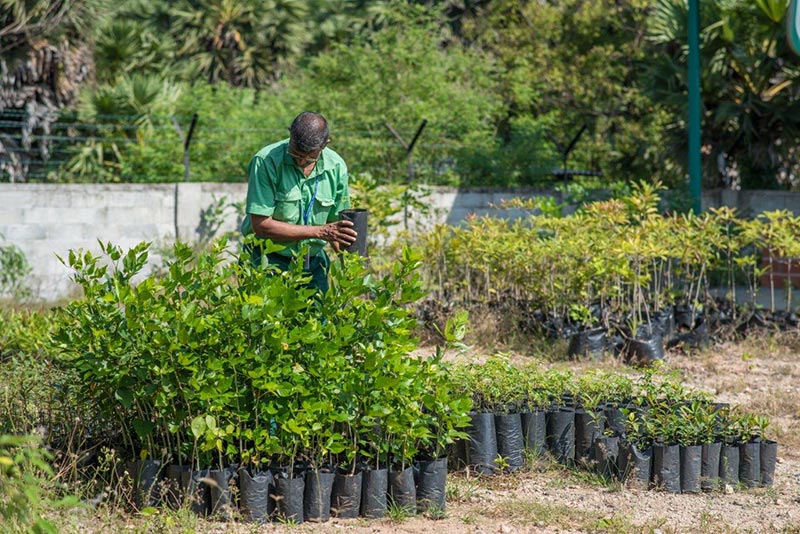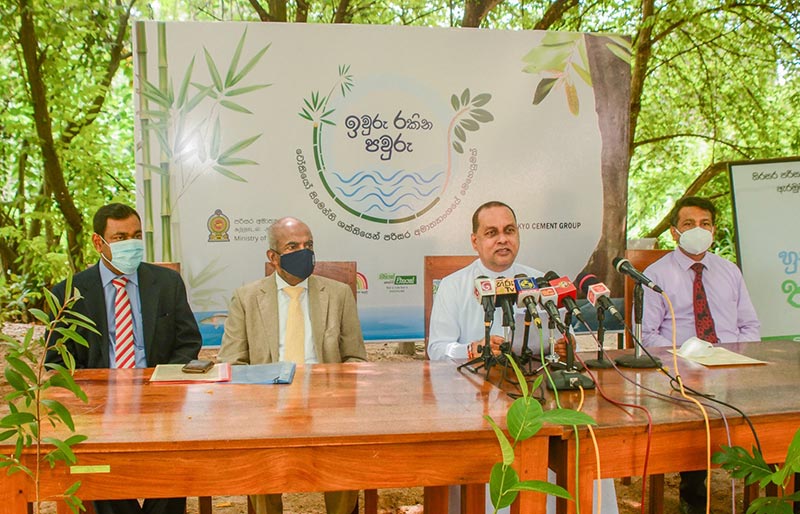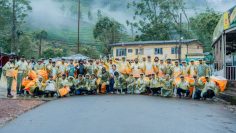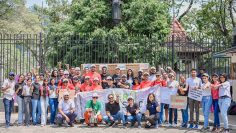
Tokyo Cement Partners the Ministry of Environment to plant 200,000 Trees on Mahaweli Riverbanks
Tokyo Cement Group stepped forward to fulfil its National duty by signing a far-reaching MOU with the Ministry of Environment. Through this memorandum of understanding, Tokyo Cement Group will fully sponsor a program by the Ministry to plant 200,000 Kumbuk and Bamboo trees in the Mahaweli River basin, with the objective of conserving this invaluable natural gift of national significance.
The program “Ivura rakina Pawura” was symbolically kicked off recently at the Ministry of Environment under the auspices of Hon. Mahinda Amaraweera, Minister of Environment and Mr. S.R. Gnanam, Managing Director of Tokyo Cement Company (Lanka) PLC, in conjunction with the National Tree Planting Program “Husma dena Thuru”. The national program is directly linked with the Government’s manifesto to increase the forest cover by planting 2 million trees, with a focus on sustainably managing sensitive river reservations.

The 3-year project aims to plant Kumbuk and Bamboo saplings sourced from regional plant nurseries on the banks of Mahaweli River along its scenic path of 335 kilometers, under the full patronage of Tokyo Cement Group while the Ministry will overlook and coordinate on-ground activities. As part of the plan, the two Tokyo Cement Forest Tree Nurseries situated in Trincomalee and Mahiyangana will contribute the required number of Kumbuk saplings each year during the project. The Ministry will garner the support of provincial state institutions and the Sri Lanka Army for the tree planting operation. The project partners also undertake to protect and look after the plants that will eventually form an intrinsic part of the water catchment areas of the Mahaweli River.
Tokyo Cement in this long-term engagement looks forward to getting the support of local farming communities and school children in the respective areas to become patrons of the trees that are planted. By engaging the local community groups the Company envisions creating a forest belt comprising of native flower and fruit-bearing trees that benefits our farming culture and will boost the natural biodiversity in each climate zone.
The two plant nurseries of Tokyo Cement have been propagating native forest tree plants with medicinal value such as, Kumbuk, Karanda, Mee, and Ingini over the last several years, with the objective of conserving the country’s unique biodiversity. These plants are distributed among various community and state organizations, who use them for reforestation programs across the island including the Mahaweli zones. These nurseries produce plant varieties that are widely in demand and can be planted in all climate zones of the country. As such, the request from the Ministry of Environment to partner them in their grand endeavour to protect the riverbanks of Mahaweli was received with much enthusiasm as yet another opportunity for Tokyo Cement to expand its National Duty as a proud Sri Lankan.
Being one of the most treasured natural gifts our beautiful island, Mahaweli River shares a unique bond with Tokyo Cement in the form of their connection to the Bay of Trincomalee. Mahaweli River with its starting point at the Horton Plains National Park, winds its way across the island as Sri Lanka’s longest river to reach the Indian Ocean at the Trincomalee Bay, also home to the Company’s manufacturing hub. Protecting the riverbanks along this path across all climate zones with a strong forest cover that will further enhance the majesty of the Mahaweli River is Tokyo Cement’s gesture of recognizing this unbreakable link.
Propagating native forest trees is among the many sustainability initiatives Tokyo Cement Group is passionately involved in. They include a distinctive Coral Reef Conservation program and a Mangroves Reforestation initiative. The company’s commitment to social responsibility breathes life through initiatives such as this, by which they successfully integrate social welfare and environmental conservation into its corporate DNA as part of their continuous mission to enrich the country, its people, and the environment.





